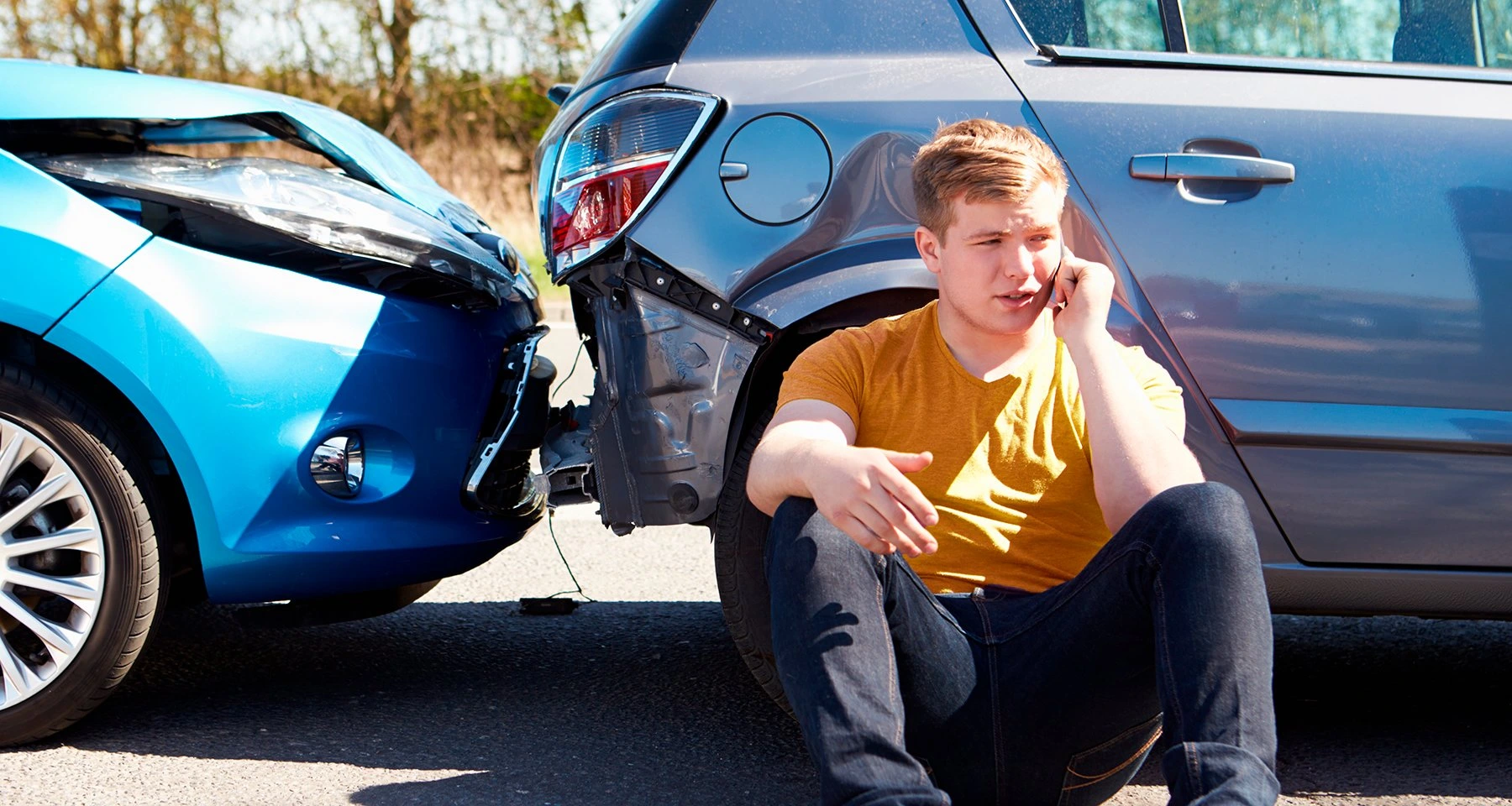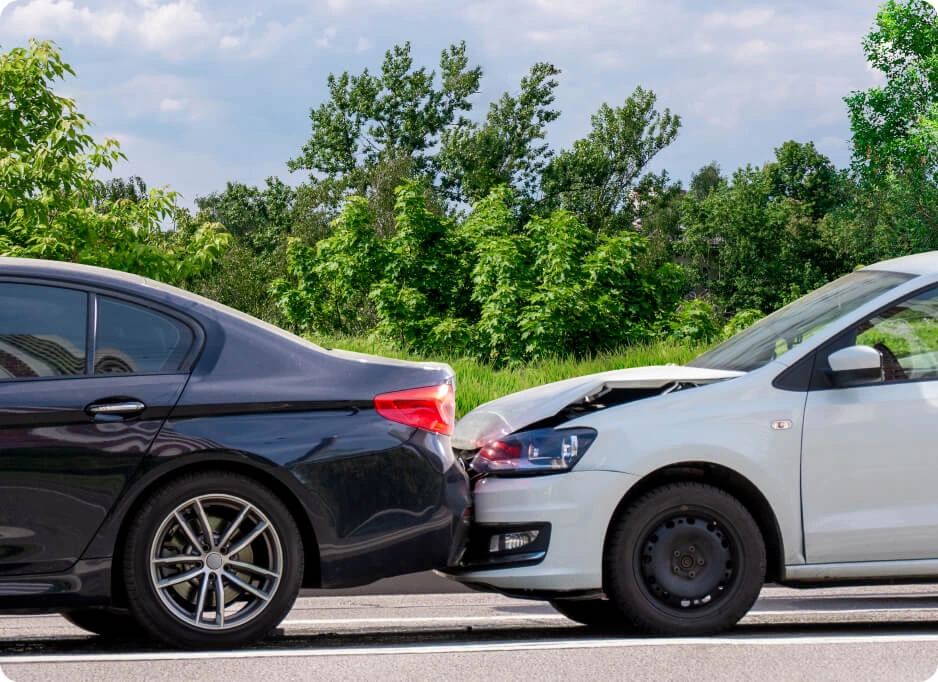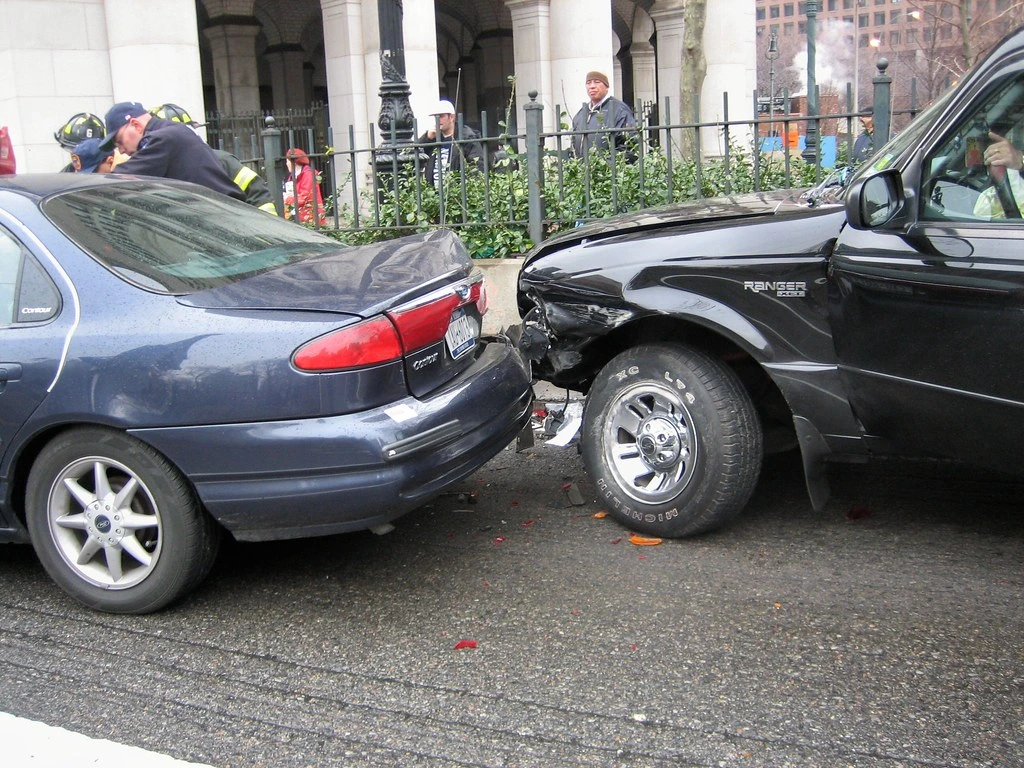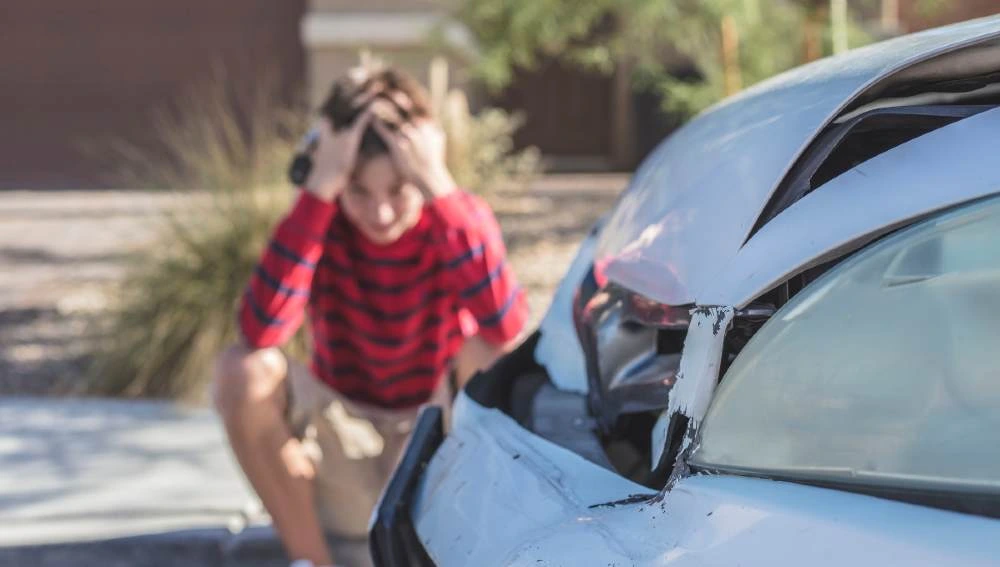If you have been in a low-speed collision or fender bender, you might be wondering: Should I get a lawyer for a minor car accident in Virginia? Many drivers assume that legal help is only necessary after a serious crash with major injuries. However, Virginia’s strict contributory negligence laws and the potential for hidden injuries mean that even a “minor” accident can have lasting consequences.
What seems like a straightforward insurance claim can quickly become complicated if fault is disputed, medical symptoms appear days later, or the other driver’s insurance company refuses to pay. In Virginia, a single misstep , even being found just one percent at fault , can completely bar you from recovering compensation.
This guide explains when legal representation may be worth considering after a minor car accident in Virginia, how insurance companies handle these claims, and what steps you can take to protect your rights from the very beginning.

Table of Contents
- Should I Get a Lawyer for a Minor Car Accident in Virginia? Factors to Consider
- Understanding What Counts as a “Minor” Car Accident
- Virginia’s Contributory Negligence Rule
- When a Lawyer May Not Be Necessary
- When You Should Consult a Lawyer- Even for a Minor Accident
- How Insurance Companies Handle Minor Accident Claims
- Potential Hidden Costs of a Minor Accident
- Role of a Lawyer in Minor Accident Cases
- Cost of Hiring a Lawyer for a Minor Accident
- Steps to Take After a Minor Car Accident in Virginia
- Final Thoughts
- FAQs: Should I Get a Lawyer for a Minor Car Accident in Virginia?
Understanding What Counts as a “Minor” Car Accident
The term “minor” car accident is often misleading. While it typically refers to crashes with little visible damage or no immediate serious injuries, the legal and financial consequences can still be significant.
Common Examples of Minor Car Accidents
- Low-speed collisions in parking lots or residential streets.
- Fender benders at stoplights or in traffic congestion.
- Sideswipes where damage appears superficial.
- Single-vehicle accidents involving small property damage, like hitting a mailbox.
Property Damage vs. Injury
Many people assume that if a crash results in only cosmetic damage to a vehicle, there is no reason to involve a lawyer. However:
- Even at low speeds, the human body can suffer injuries such as whiplash, soft tissue damage, or mild concussions.
- Some injuries develop gradually and may not be noticeable until days or weeks later.
Why “Minor” Does Not Always Mean Simple
What starts as a small claim can become more complex if:
- The other driver disputes fault.
- The damage estimate increases after the repair shop finds hidden structural issues.
- Medical symptoms appear after you have already accepted a settlement.
Virginia’s Contributory Negligence Rule
Virginia follows one of the strictest fault systems in the country , pure contributory negligence. Under this rule, if you are found even 1% at fault for an accident, you cannot recover any compensation from the other driver’s insurance company.
How It Works
- If another driver rear-ends you but claims you stopped suddenly without reason, the insurance company might argue that you share some blame.
- Even a very small degree of fault can result in your claim being denied entirely.
Why It Matters for Minor Accidents
Many drivers assume that small accidents are straightforward, but contributory negligence can complicate things when:
- The police report is unclear or incomplete.
- The other driver’s version of events differs from yours.
- There are no independent witnesses.
In these situations, having a lawyer can make the difference between receiving fair compensation or getting nothing at all.
When a Lawyer May Not Be Necessary
Not every minor car accident in Virginia requires hiring an attorney. In some situations, you may be able to handle the claim yourself without risking your rights.
You may not need a lawyer if:
- No one is injured and there are no signs of delayed pain or symptoms.
- Property damage is minimal and the cost of repairs is well within your insurance policy limits.
- Fault is undisputed and clearly documented in the police report.
- The claim is small enough to be handled in Virginia’s Small Claims Court (currently up to $5,000).
Caution: Even in these cases, a quick consultation with a lawyer can still be helpful to confirm you’re making the right decision before accepting a settlement.
When You Should Consult a Lawyer- Even for a Minor Accident
Even a “minor” accident can cause major legal and financial headaches. It’s worth speaking to a lawyer if:
- You develop delayed injuries such as whiplash, concussion symptoms, or back pain.
- Fault is disputed or the police report contains errors.
- The insurance company makes a lowball offer or denies your claim outright.
- Multiple vehicles are involved, making liability more complicated.
- The other driver was on the job (commercial or government vehicle), which can introduce additional legal hurdles.
- You are accused of contributory negligence, risking complete loss of compensation.
In these scenarios, legal representation can help gather evidence, challenge fault claims, and negotiate for a fair settlement that reflects the true cost of your losses.

How Insurance Companies Handle Minor Accident Claims
Minor claims are where insurers often try to save the most money. They use processes that seem routine but are designed to limit what they pay.
They push for quick statements
Adjusters call soon after the crash and ask for a recorded statement. With the other driver’s insurer, you have no legal duty to give one. Anything you say can be used to argue partial fault or downplay symptoms. With your own insurer, your policy likely has a cooperation clause, but you can give a statement through your lawyer.
They anchor you with a fast first offer
Early offers arrive before you know the full extent of injuries or hidden vehicle damage. Once you sign a release, you usually cannot reopen the claim if symptoms worsen or repair costs rise.
They exploit contributory negligence
In Virginia, even one percent fault can bar recovery. Insurers look for small details to shift blame. Examples include a sudden stop, rolling forward at a yield, or not calling police. A single poorly phrased sentence can become their basis to deny the claim.
They request overly broad medical authorizations
Blanket authorizations let insurers pull years of records to hunt for preexisting conditions. You can limit authorizations to crash-related treatment and a reasonable time window.
They question “gaps in treatment”
If you wait to see a doctor, adjusters argue you were not hurt or that something else caused your pain. Document symptoms early, even if they seem mild.
They minimize property damage
Typical tactics include:
- Using the lowest shop estimate or aftermarket parts
- Ignoring alignment or frame checks
- Refusing to pay for diagnostic tear-downs until proven “necessary”
- Pushing you to their preferred body shop
Virginia recognizes claims for diminished value against an at-fault driver. Insurers rarely volunteer this. You must ask and support it with evidence.
They nickel-and-dime loss of use
You can claim reasonable rental costs or loss-of-use damages while your car is down. Even if you do not rent a car, Virginia law allows a reasonable daily rate for the time you were without your vehicle. Insurers often lowball or limit the rental period to shop estimates only.
They control communication cadence
Delays, “lost” documents, and rotating adjusters wear people down. The longer it drags, the more likely a quick, low settlement looks appealing.
Potential Hidden Costs of a Minor Accident
Small collisions can carry expenses that do not show up on day one. Understanding these helps you avoid settling too early.
Delayed-onset injuries
- Whiplash and soft tissue strains. Pain and stiffness often peak days after the crash and may require physical therapy, imaging, or injections.
- Concussions. Headaches, brain fog, light sensitivity, or sleep problems can appear late and linger.
- Back and shoulder injuries. Herniations or rotator cuff strains sometimes surface after initial swelling subsides.
- TMJ or jaw pain. Often overlooked, but common after airbag or seat belt forces.
If you settle before these are diagnosed, you cannot claim the costs later.
Medical costs beyond copays
Expect bills from multiple sources. These can include emergency physicians, radiology, physical therapy, durable medical equipment, and prescription refills. Health insurers, Medicare, Medicaid, or workers’ compensation may assert reimbursement rights from your settlement. Plan for lien resolution.
Lost time and income
Even minor injuries can mean partial days off, reduced duties, or missed overtime. Keep pay stubs, schedules, and employer letters to document lost wages and loss of earning capacity if duties change.
Vehicle repair “supplements”
Shops frequently discover hidden damage once panels come off. Supplements add cost and extend repair time. Insurers may resist until the shop documents the need.
Alignment, sensors, and calibration
Modern vehicles require post-repair alignment and ADAS recalibration for cameras, radar, and lane assist. These services add cost and are easy for adjusters to challenge if the shop does not spell them out.
Diminished value
Even after proper repairs, a Carfax entry and prior-damage stigma can reduce resale value. In Virginia you can claim diminished value from the at-fault party with supporting documentation, such as appraisals or market comps.
Rental and transportation
If you do not have rental coverage, you can still claim loss of use. Also track rideshares, mileage to medical visits, parking, and tolls related to treatment or claim handling.
Towing and storage
Delays in inspections or parts can increase storage charges. Insurers may dispute “unreasonable” days. Keep timelines and communications to show the delay was not your fault.
Childcare and household help
Short-term help can be compensable if you document the need. Examples include childcare during medical appointments or help with chores you cannot perform.
Safety items that must be replaced
Car seats often need replacement after a crash depending on manufacturer guidance and crash severity. Save the seat, manual, photos, and purchase receipts.
Emotional impact and driving anxiety
Minor collisions can still trigger anxiety or avoidance of driving. Counseling costs and documented symptoms can support a non-economic damages claim if injuries are otherwise documented.

Role of a Lawyer in Minor Accident Cases
Even when damages seem small, an experienced Virginia car accident lawyer can prevent mistakes that reduce or eliminate your recovery. Their involvement goes beyond simply “sending a demand letter.”
1. Investigating and Preserving Evidence
- Reviewing police reports for inaccuracies.
- Contacting witnesses before memories fade.
- Securing surveillance or dashcam footage.
- Documenting vehicle damage before repairs erase evidence.
2. Navigating Contributory Negligence Risks
A lawyer can spot and counter arguments that might put even 1% of the blame on you , the threshold that bars recovery in Virginia.
3. Handling the Insurance Company
- Communicating directly with adjusters so you don’t accidentally harm your case.
- Rejecting lowball offers and pushing for accurate damage assessments.
- Ensuring medical bills and lien resolutions are handled properly.
4. Advising on Settlement vs. Litigation
Sometimes it makes sense to accept a fair offer quickly; other times, court is the better option. A lawyer can give a clear-eyed risk–reward assessment based on evidence and law.
5. Valuing Non-Economic Damages
Even a minor accident can cause pain, inconvenience, and anxiety. Lawyers know how to document these losses and factor them into negotiations.
Cost of Hiring a Lawyer for a Minor Accident
One of the biggest hesitations people have is whether legal fees outweigh the benefit of hiring a lawyer for a smaller claim.
Contingency Fee Structure in Virginia
- Most personal injury lawyers in Virginia work on a contingency basis , typically 33% to 40% of the settlement or verdict.
- You pay nothing upfront, and fees come from the final recovery.
When It May Not Make Financial Sense
If the total value of your claim (property damage + injury damages) is low, legal fees might eat up too much of your payout. This is why many lawyers decline purely property damage–only cases unless there are special circumstances.
When It’s Worth It Despite the Fee
- Injuries with ongoing treatment needs.
- Disputed liability where losing means getting nothing.
- Cases involving contributory negligence claims.
- Situations where a lawyer’s involvement significantly increases the offer.
Other Potential Costs
Even on contingency, you may owe for case expenses like filing fees, expert witnesses, or accident reconstruction , usually reimbursed from the settlement. A good lawyer will explain how these costs work before you sign an agreement.
Steps to Take After a Minor Car Accident in Virginia
Even if the crash seems small, following a clear process protects your health, your finances, and your ability to recover damages.
1. Ensure Safety First
- Move vehicles to a safe location if possible.
- Turn on hazard lights and check for injuries.
- Call 911 if anyone is hurt or if traffic hazards exist.
2. Call the Police
Virginia law requires you to report accidents involving injury, death, or property damage of $1,500 or more. While not legally required for very minor damage below this threshold, getting a police report can still help protect against future disputes about fault and circumstances.
3. Exchange Information
- Name, address, and contact details.
- Driver’s license number.
- Insurance company and policy number.
- Vehicle make, model, year, and plate number.
4. Document the Scene
- Take photos of vehicle damage, license plates, and the surrounding area.
- Photograph any skid marks, debris, or traffic signs.
- Capture weather and lighting conditions.
5. Seek Medical Attention
- Even if you feel fine, get checked by a doctor within 24–48 hours.
- Ask for written documentation of your visit.
- Keep all bills, prescriptions, and therapy records.
6. Notify Your Insurance Company
- Report the accident promptly as required by your policy.
- Provide basic facts only; avoid admitting fault or speculating.
7. Consult a Lawyer if Needed
If there is any dispute over fault, if injuries develop later, or if the insurer is uncooperative, a lawyer can step in to protect your claim.

Final Thoughts
Whether your accident seems minor or major, Virginia’s contributory negligence rule means even a small misstep can cost you your entire claim. What starts as a simple fender bender can become complicated if injuries appear later, fault is disputed, or the insurance company refuses to pay a fair amount.
If there is any doubt about your rights, the value of your claim, or how to handle the insurance process, it’s worth speaking to a Virginia car accident lawyer , even for a minor crash. A short consultation can give you peace of mind and ensure you don’t unintentionally give up the compensation you deserve.
FAQs: Should I Get a Lawyer for a Minor Car Accident in Virginia?
Q1: Do I have to report a minor car accident in Virginia?
Yes. State law requires reporting to police if there is any injury, death, or property damage, no matter how small.
Q2: Will my insurance rates go up after a minor accident?
Possibly. Even if you are not at fault, your insurer may still raise premiums depending on your claim history and policy terms.
Q3: How long do I have to file a claim?
Virginia’s statute of limitations is generally two years from the accident date for personal injury claims and five years for property damage claims.
Q4: Can I hire a lawyer later if I first try to handle it myself?
Yes, but it’s best to involve a lawyer early before you give statements, accept offers, or miss deadlines.
Q5: What if the other driver’s insurer refuses to pay?
You can pursue the claim through your own insurance, mediation, or by filing a lawsuit. A lawyer can advise on the best route.
Latest Posts
Should I Get a Lawyer for a Minor Car Accident in Virginia?
If you have been in a low-speed collision or fender bender, you might be wondering: Should I get a lawyer for a minor car accident in Virginia? Many...
Should I Get a Lawyer for a Minor Car Accident in Virginia?
Can I Fire My Accident Lawyer in Virginia? A Complete Guide
If you're wondering, "Can I fire my accident lawyer in Virginia?", the short answer is yes, you have the legal right to change attorneys at any point in...
